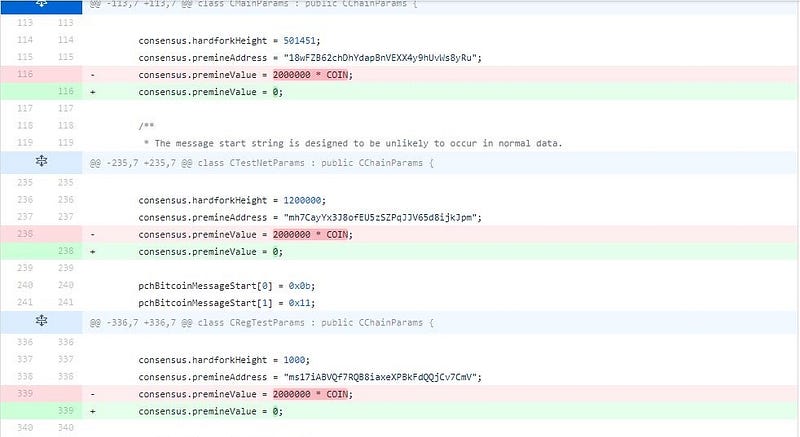Bitcoin God, SegWit2x, And All That Jazz: Another Day, Another Hard Fork

Late December brought yet another gift for the cryptocurrency market crowd: a new altcoin with a pretentious name, Bitcoin God. The new cryptocurrency is a hard fork that had been announced a few weeks earlier. Bitcoin God originated from the Bitcoin blockchain at block 501 225. The man behind the latest hard fork is Chandler Guo, a Chinese businessman whose company describes itself as a “non-profit P2P organization.”
Here are some of the advantages of GOD (short for “Bitcoin God”) as outlined by Guo himself: smart contract and Lightning Network support, large block size, Proof-of-Stake mining, and extra confidentiality protection thanks to Zero-Knowledge Proof technology.
According to the project’s website, the number of new altcoins is limited to 21 million. 17 million of them will remain in bitcoin holders’ wallets while the remaining 4 million cryptocoins will be donated to charitable causes. For this purpose, users are encouraged to share their wallet addresses on the project’s social networking profiles. Later on, the community is expected to vote to decide on the size and ratio of the donations.
The website also claims that technical support for the new altcoin is provided by Bytom, Metaverse, NEO, QTUM, and Mobius. The wallets and exchanges that already announced their support of GOD include Bithumb, Bittrex, Poloniex, OKEX, Kraken, GDAX, and Huobi.pro. In total, 46 cryptocurrency exchanges and 26 wallets are currently supporting the new hard fork. GOD is now officially trading on YoBit and many other exchanges are planning to support the altcoin in the future. Going by the roadmap, the main network launch is expected to take place in Q1 2018.
GOD’s launch was originally scheduled for December 25th. Up until that date, the project’s founder claimed that the launch of the hard fork would symbolize “giving candy to all bitcoin holders.” Despite all the benefits of the new cryptocurrency, analysts believe it is unlikely to become that popular. The thing is, not so many market participants are aware of the project and, unless the new coin gains support from the crypto community, it is pretty much doomed. Plus, the main problem is that the number of hard forks keeps growing and growing.
Anyone can just go and announce a new hard fork, which only reduces the importance of hard forks in general and undermines the cryptocurrency market players’ trust in new coins, as well as the original bitcoin.
“The community is not unanimous about the new hard fork. Bitcoin God has neither widespread support nor a big publicity campaign. Therefore, it is unlikely that we will see the project grow at a fast pace, let alone compete with Bitcoin Cash and the traditional bitcoin for leadership,” says Dmitry Matsuk, the Founder of Blockchain.ru.
OK, But What About SegWit2x?
Here, to quote the protagonist of Alice in Wonderland, things are getting “stranger and stranger.” The problem is, there is currently an entirely new team of developers behind SegWit2x, one that the crypto community is rather sceptical of.
According to the fork’s website, the new team includes three leaders: Jaap Terlouw, Donna Khyuz, and Robert Szabo.
Jaap’s LinkedIn profile names him as the Lead Developer and Consultant at SegWit2x. However, he appears to have no experience in blockchain development. The same profile also states that Jaap is a company CEO, but the company name is not specified. He previously worked for another unnamed company in the strange capacity of Mayor SLM New Build.
Donna’s story is even more obscure. She has an Instagram profile claiming she is a crypto developer and ICO and blockchain expert.
Sounds good, except that as recently as December 19th the same profile described Khyuz as a model, dancer, and businesswoman. Looks like it only takes a week to transform from a model into a crypto developer — now that’s what we call a talent.
The third teammate, Robert Szabo, provided a slightly bigger bio than his colleagues, however, he too has no experience in blockchain development. As far as we can tell, Szabo is an automation engineer who used to work for T-Mobile.
A few days ago, the team acquired two more members: Artur Bujnicki and Bartosz Kozłowski. In this whole cozy company, only Bujnicki appears to have experience in software development, as stated in his bio. The company’s Team page used to include another member, Sairam Jetty, who was surprised to find out about his new “job.” As it turned out, Jetty never gave the permission to post his photo and bio on the company’s website and calls the whole SegWit2x operation, as it is at the moment, a scam.
Besides, the SegWit2x page has been on Github for just over a 2 weeks. There is also a Reddit thread, BitcoinScamCoins, reporting that a SegWit2x representative asked the community members for their private keys. The same thread claims that SegWit2x’s pre-mine is 2 million coins (or even as much as 6 million).
On top of that, some claim that the developers’ accounts contain information about fictitious people.
All in all, new hard forks do little good to the cryptocurrency community. The only thing they do is undermine the market players’ trust in the original cryptocurrency. Perhaps this explains why the BTC exchange rate has stopped rocketing and is currently plummeting.






Can’t believe you have put it so well that even a newbie like me can understand it. Many many thanks.
BeantwoordenVerwijderenCryptocurrency trade